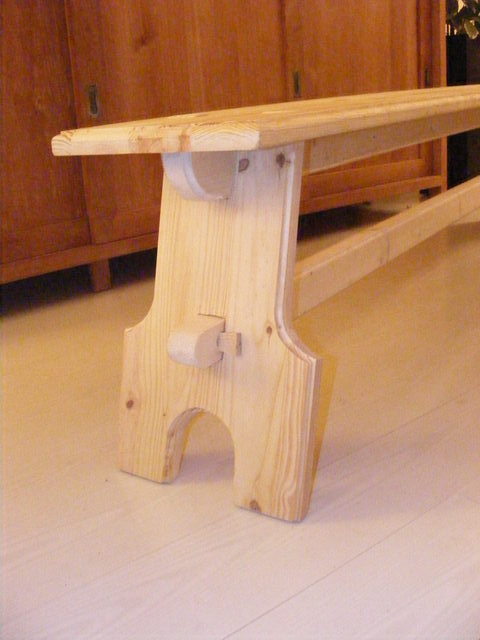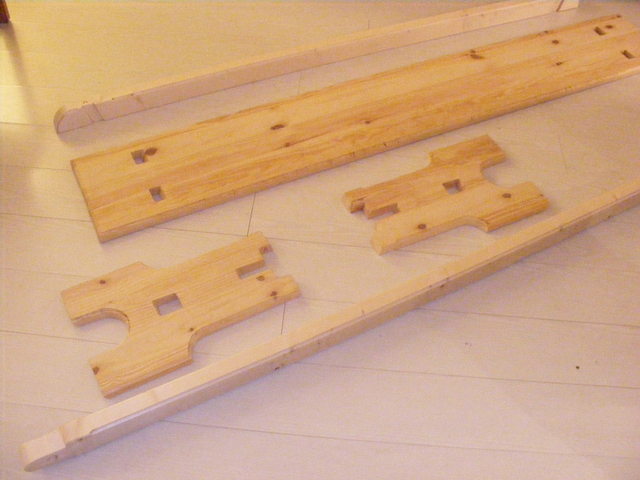Posts: 671 Location: The Netherlands
Wed 02 Feb, 2011 12:12 pm
Attached are two more pictures of the bench. The first one shows how I reworked the ends of the beams. I didn't like the square ends so I rounded them off. The second picture shows the bench disassembled.
I still could use more advise on how to finish it. I discussed it with the other members in my reenactment group, but doing it with boiled linseed oil is going to take too much time, considering the amount of other items that we are going to make.
The article on medievalwoodworking.org mainly deals with interior finishes, not exterior finishes. This bench will be used outside, though it will most often sit under a our day shade. The article says that using modern furniture oil or wax isn't durable and that wax laquer gives it a very plastic look.
Does anyone have experience using modern furniture oil or wax? I'd prefer not to stain or paint the bench. I quite like it how it is. A shade or two darker would be fine, but not something really dark like most modern stains are.
Thanks in advance!
 Attachment: 57.92 KB
Attachment: 57.92 KB

The reworked ends of the beams
 Attachment: 55.93 KB
Attachment: 55.93 KB

Disassembled, easy for transport


